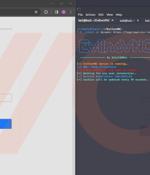Security News

Understanding endpoint privilege management is key to defending organizations from advanced attacks. Learn more from ThreatLocker on using endpoint privilege management to better secure your org's...

The automotive industry is facing many of the same cybersecurity risks and threats that successful organizations in other sectors are up against, but it’s also battling some distinct ones. In this...

Discover our top picks for reputable free endpoint protection platforms and compare their features, pros and cons in this in-depth guide.

Ivanti on Tuesday rolled out fixes to address multiple critical security flaws in Endpoint Manager (EPM) that could be exploited to achieve remote code execution under certain circumstances. Six...

Most IT and security teams would agree that ensuring endpoint security and network access security applications are running in compliance with security policies on managed PCs should be a basic task. The 2024 Cyber Resilience Risk Index report found that, if not supported by automated remediation technologies, top endpoint protection platforms and network access security applications are failing to maintain compliance with security policies 24% of the time across its sample of managed PCs. When combined with data showing significant delays in patching applications, Absolute Security argued organisations may be ill-equipped to make the landmark shift to AI PCs, which would require significant resourcing and direct attention away from these foundations of cyber security.

In today's digital world, where connectivity is rules all, endpoints serve as the gateway to a business’s digital kingdom. And because of this, endpoints are one of hackers' favorite targets. ...

Attackers are increasingly making use of “networkless” attack techniques targeting cloud apps and identities. Here’s how attackers can (and are) compromising organizations – without ever needing...

Traditionally, medical devices have replacement schedules based on mean times for component failures, and not on cybersecurity concerns. Securing networked medical devices requires a complex strategy of mitigation efforts, starting with installing endpoint protection agents on devices that support it.

Fortinet patched a critical vulnerability in its FortiClient Enterprise Management Server software that can allow attackers to gain remote code execution on vulnerable servers. Last month, Fortinet disclosed a critical remote code execution bug in the FortiOS operating system and the FortiProxy secure web proxy, which the company tagged as "Potentially being exploited in the wild."

Ivanti has released security updates to address a critical flaw impacting its Endpoint Manager (EPM) solution that, if successfully exploited, could result in remote code execution (RCE) on...